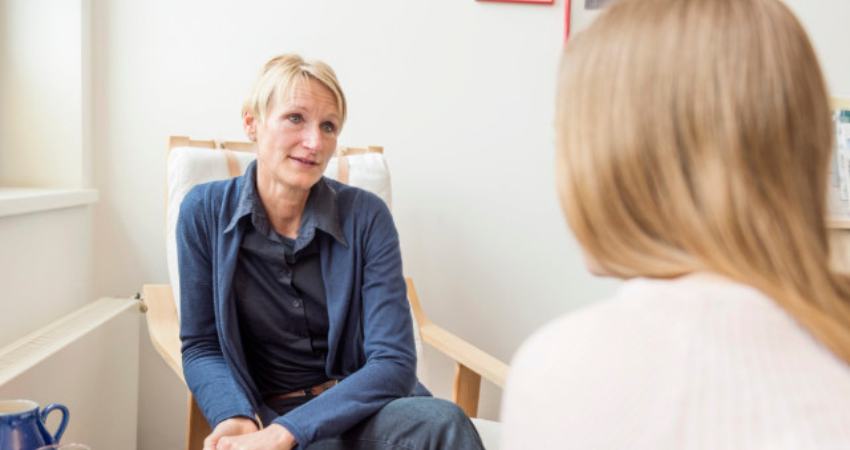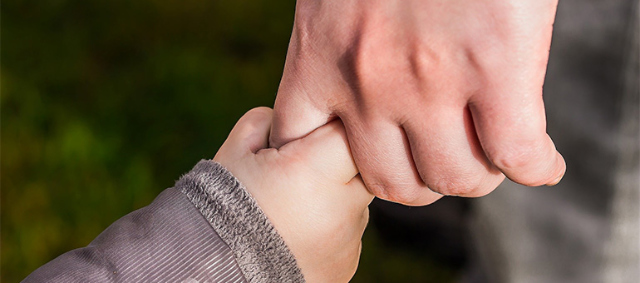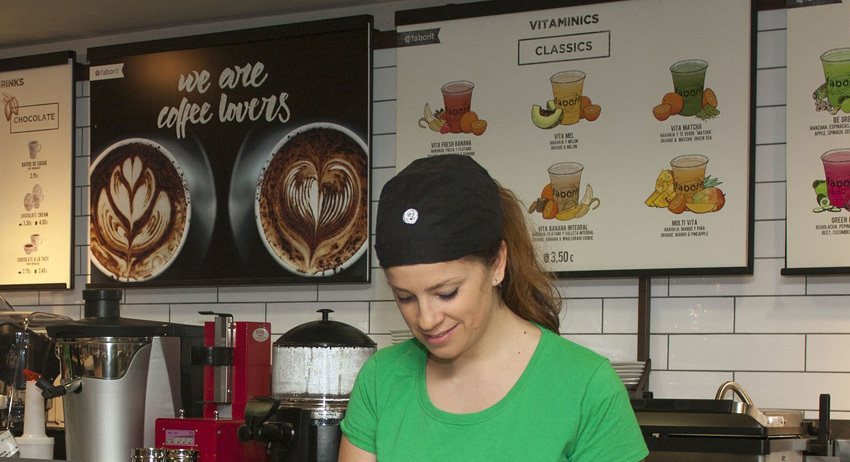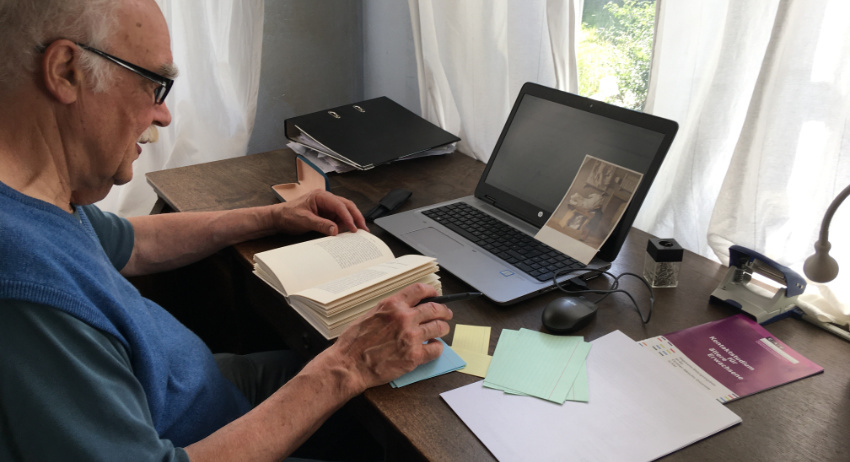Advice & Help
How do I finance my studies? Where do I get help if I am not feeling well? How do I organise my studies around my children? What support is there for me if I am disabled?
There are contacts at the student welfare organisation Studentenwerk Schleswig-Holstein (student union) and some direct contacts at Kiel’s universities to answer these types of questions.

on this page
Social & psychological advice
Examination anxiety, performance pressure, exhaustion, relationship problems or financial hardships – sometimes situations arise in which we need support and it is helpful to be able to speak to a neutral listener.
Alongside comprehensive advice on student life, the Studentenwerk Schleswig-Holstein (student union) also offers free psychological advice.

Studying without barriers
A physical limitation, chronic illness or disability can make studying more difficult for many of those affected.
Universities not only have a statutory duty to balance out these disadvantages and create the conditions required for successful study, they have also declared their commitment to this effect. Kiel’s universities and the student welfare organisation Studentenwerk Schleswig-Holstein (student union) offer relevant advice and support for students, teachers and other members of staff.

FURTHER INFORMATION
Studying with children
Parenting, studying and perhaps working, too - juggling everything at the same time is a particular challenge.
In Germany, some students doing their first degree programme are also parents. The daily life of students with children is often more complicated than that of childless students, involves more organisation and is more expensive.
The Studentenwerk Schleswig-Holstein (student union) advises students with children and runs five daycare centres in Kiel for children of students. The university canteens also provide free children’s meals. For an overview of the statutory regulations, have a look at the Studentenwerk’s brochure "Studieren mit Kind in Schleswig-Holstein" (studying with a child in Schleswig-Holstein).
Kiel University of Applied Sciences (FH Kiel) and Kiel University (CAU) have established family service offices. The AStA (student committee) at Kiel University also offers advice and organises regular family breakfasts and family coffee mornings for students with children.

FURTHER INFORMATION
- Advice provided by Studentenwerk SH (student union)
- Advice provided by AStA (student committee) at Kiel University (German)
- Exchange services provided AStA (student committee) at Kiel University
- Family services at Kiel University (CAU)
- Family and studies at Kiel University of Applied Sciences (German)
Financing studies
Studying costs money and many students use several sources of funding. Loans, scholarships and BAföG (Student Financial Assistance Programme) funding are available for financial support.
Sometimes students can also claim housing benefits or social security benefits, for example, for pregnant women or single parents. Working a side job is also possible to a varying degree. An overview of the financial possibilities is available on the Studentenwerk Schleswig-Holstein (student union) website. The Studentenwerk SH also provides detailed information and advice on the subject.
Kiel University (CAU) also offers information on financing your studies and the Muthesius University of Fine Arts and Design details specific scholarships and competitions available to their students.
Kiel University and Kiel University of Applied Sciences (FH Kiel) award the "Deutschlandstipendium" (Germany scholarship) as part of a nationwide funding programme. The City of Kiel supports foreign students from its partner cities with the Kiel Scholarship.
Part-time jobs & internships
Most students work part-time jobs alongside their studies. By doing so, they boost their income and gain their first experiences of working life.
Kiel offers many opportunities for part-time work alongside studies or for gaining first insights into working life through internships. There are lots of cafés, restaurants and shops, Kieler Woche as a major annual event, the Landtag (regional parliament) and other political establishments, agencies and many interesting companies.

SEARCH AIDS FOR JOBS & INTERNSHIPS
- as a working student
- as a marginally paid job (mini-job or 520-euro job)
- as short-term employment, for example as a semester break job
- as a midi-jobber (Gleitzone activity)
- as a self-employed person
Additional earnings affect tax and social security contributions, and if you receive BAföG, an average monthly salary of more than 450 euros is counted towards the BAföG rate.
In terms of labour law, the same legal regulations apply to students as to all employees:
- Minimum wage
- Entitlement to a written employment contract
- six weeks sick pay
- paid holiday entitlement on a pro rata basis
- Compliance with the notice periods
Accommodation
Affordable rent and close proximity to the university are the most important criteria for students when looking for accommodation.
Especially at the start of the semester, student accommodation is limited, and it is advisable to look for somewhere to live in advance. The Studentenwerk Schleswig-Holstein (student union) and AStA (student committee) offices at the various universities in Kiel provide information and support.

Student residences and private rooms
The Studentenwerk Schleswig-Holstein (student union) operates multiple student residences near the campuses in Kiel. In addition, there are several residences run by independent operators. Alternatively, those looking for a room in a shared house/flat or to sub-lease can search the daily papers or online accommodation websites, including one published by Kiel University AStA (student committee).
HELP WITH SEARCHING FOR ROOMS
Living for help
The "Living for Help" homeshare project offers an interesting alternative. The Studentenwerk Schleswig-Holstein (student union) creates accommodation by forming partnerships between students and families, the elderly and people with disabilities. Those willing to help around the house only pay a low rent.
Studying as an adult learner
Starting a new course, developing existing interests or pursuing completely new ones after establishing a career and having a family – various opportunities are available for studying as an adult learner.
The contact studies programme includes specific lectures and use of free spaces in regular university lectures. The following subjects are usually represented:
- Theology and History of Religions and Ideologies
- Medicine and History of Medicine
- Law
- History
- Philosophy
- Languages and Literature
- Music and History of Music
- History of Culture and History of Art
- Media Studies and Media Skills
- Natural Sciences
No. Contact studies events are open to everyone, including those without an Abitur or another qualification for admission to higher education.
The cost is divided into two parts:
- The contact studies programme ID costs €30 per semester.
- Fees are charged for individual courses and these are listed in the registration form.
In addition, some courses may charge additional fees for material costs, photocopying costs and laboratory costs. There are various discounts and rebates.
Use the Kiel University (CAU) registration form - either fill it in online or download it, fill it in and post it to:
Kontaktstudium nach Beruf und Familie, Olshausenstrasse 75, 24118 Kiel.
You can also register in person at the office during opening hours. The office is located at Olshausenstrasse 75, Building I, Room 016 (Basement).
With contact studies, you cannot take any examinations, there are no ECTS credit points or other qualification certificates. This applies both to additional classes as well as to the use of free spaces in lectures.
Guest student membership must be applied for in writing at all universities.
At Kiel University (CAU) the application must be received up to four weeks after the lecture period starts. A fee of €100 per semester is charged.
At Kiel University of Applied Sciences (FH Kiel) the application must be submitted by 15 January for the summer semester and by 15 July for the winter semester. The applicant’s school-leaving certificate, which must be at least intermediate level ("mittlere Reife"), must be attached. An administrative fee of €10 is charged.
At the Muthesius University of Fine Arts and Design, guest students may attend lectures on art theory. Anyone interested in doing so must fill in the application for guest student membership and send this, together with a copy of their school-leaving certificate and a motivational cover letter, to the Student Secretariat at the start of the semester. The Presidium (University Board) is responsible for approving guest student applications in agreement with the respective lecturers.




